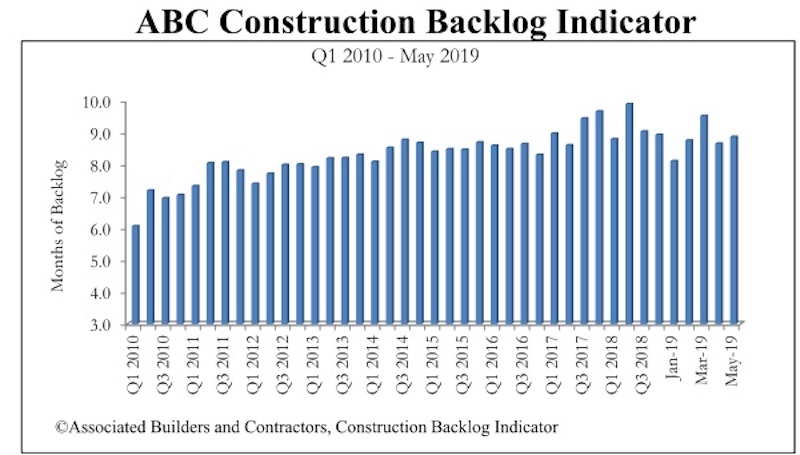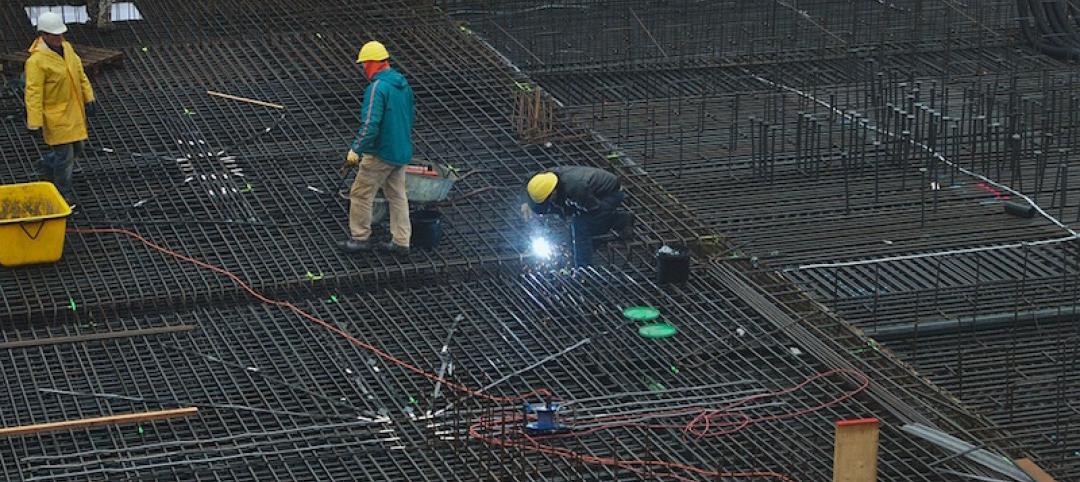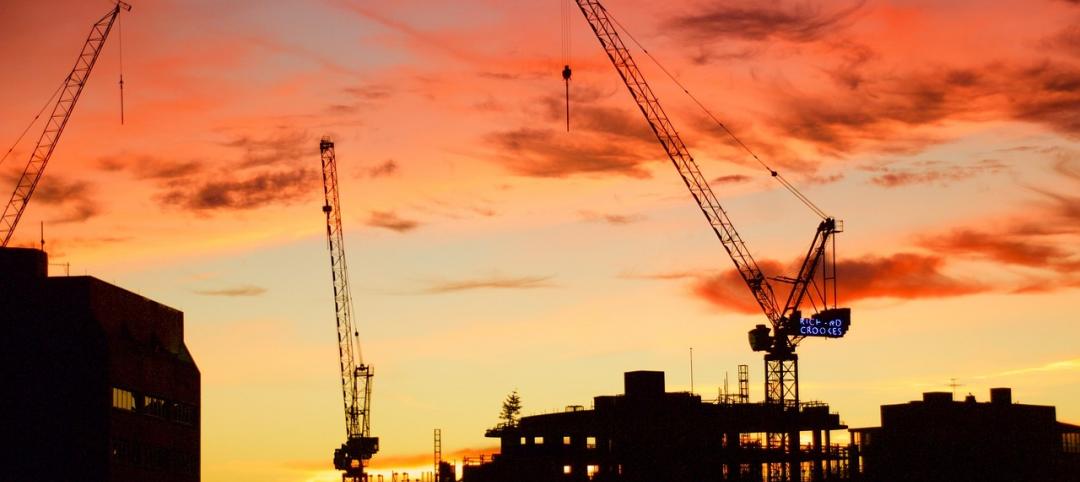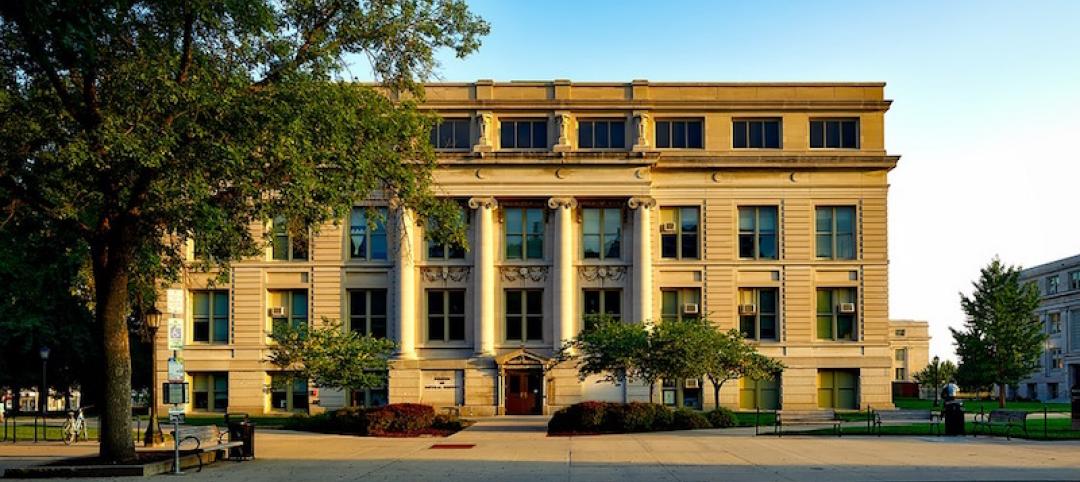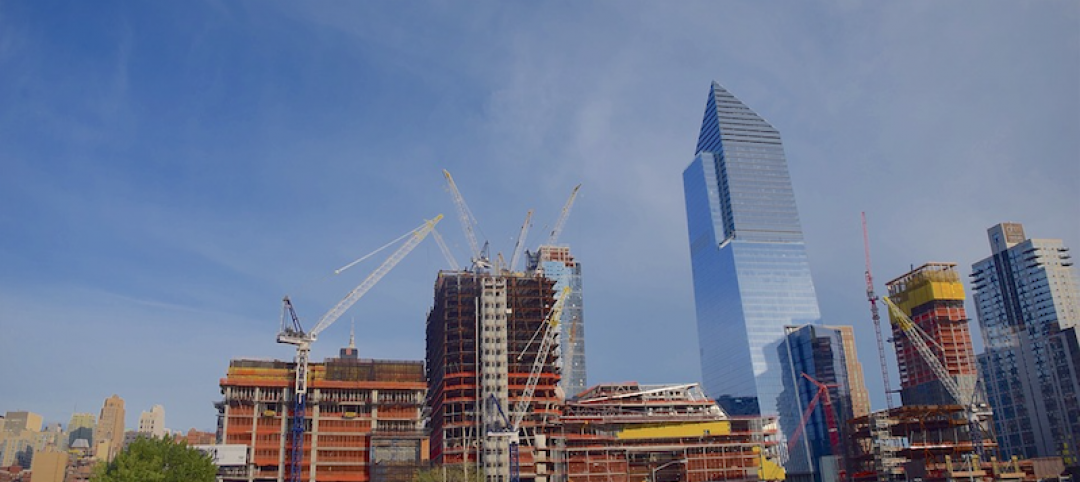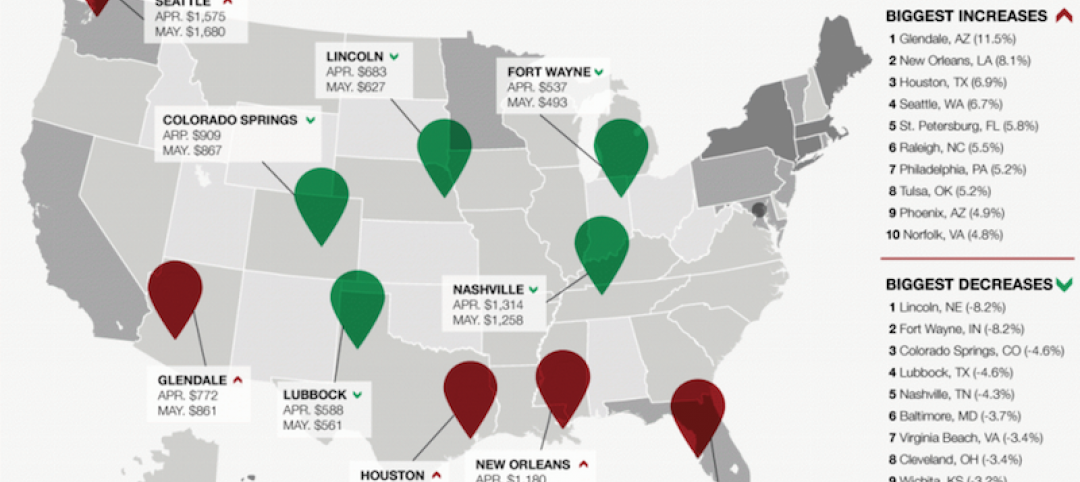Associated Builders and Contractors reported today that its Construction Backlog Indicator expanded to 8.9 months in May 2019, up 0.2 months or 2.2% since April 2019, when CBI stood at 8.7 months.
“Nonresidential construction spending continues to be a significant source of economic strength in America, and the latest Construction Backlog Indicator strongly suggests that nonresidential construction spending will continue to be a major driver of business revenue growth and employment,” said ABC Chief Economist Anirban Basu. “Despite concerns about the rising costs of material prices and labor impacting construction contracts, demand for nonresidential construction services remains elevated for now.
“In general, nonresidential construction spending patterns lag the broader economy by 12-18 months,” said Basu. “While nonresidential construction doesn’t keep pace with other industry segments during the early stages of an economic recovery, it can continue to see robust growth during the late stages of an economic expansion. With the economy continuing to demonstrate momentum along the dimensions of financial market performance, job creation, income growth and consumer spending, contractors can expect several additional quarters of spending growth.
“That said, infrastructure backlog declined sharply in May, which is likely a statistical aberration,” said Basu. “The infrastructure category is dominated by several very large firms, and changes in their idiosyncratic backlog can have major impacts on the overall reading. There is little reason to expect a meaningful dip in infrastructure spending in the near term given the improving financial health of many states and localities across the nation. Moreover, backlog in the commercial/institutional and heavy industrial segments rose in May. Several construction firms specializing in heavy industrial construction in the Midwest report substantial increases in construction backlog.”
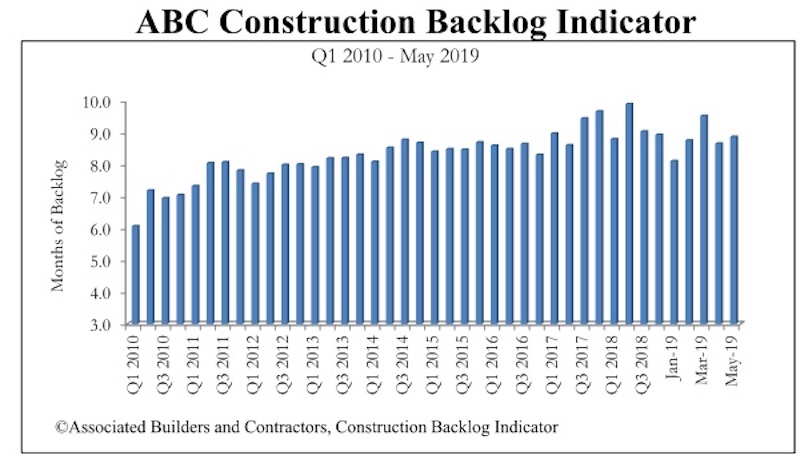
Related Stories
Market Data | Jun 21, 2017
Design billings maintain solid footing, strong momentum reflected in project inquiries/design contracts
Balanced growth results in billings gains in all sectors.
Market Data | Jun 16, 2017
Residential construction was strong, but not enough, in 2016
The Joint Center for Housing Studies’ latest report expects minorities and millennials to account for the lion’s share of household formations through 2035.
Industry Research | Jun 15, 2017
Commercial Construction Index indicates high revenue and employment expectations for 2017
USG Corporation (USG) and U.S. Chamber of Commerce release survey results gauging confidence among industry leaders.
Market Data | Jun 2, 2017
Nonresidential construction spending falls in 13 of 16 segments in April
Nonresidential construction spending fell 1.7% in April 2017, totaling $696.3 billion on a seasonally adjusted, annualized basis, according to analysis of U.S. Census Bureau data released today by Associated Builders and Contractors.
Industry Research | May 25, 2017
Project labor agreement mandates inflate cost of construction 13%
Ohio schools built under government-mandated project labor agreements (PLAs) cost 13.12 percent more than schools that were bid and constructed through fair and open competition.
Market Data | May 24, 2017
Design billings increasing entering height of construction season
All regions report positive business conditions.
Market Data | May 24, 2017
The top franchise companies in the construction pipeline
3 franchise companies comprise 65% of all rooms in the Total Pipeline.
Industry Research | May 24, 2017
These buildings paid the highest property taxes in 2016
Office buildings dominate the list, but a residential community climbed as high as number two on the list.
Market Data | May 16, 2017
Construction firms add 5,000 jobs in April
Unemployment down to 4.4%; Specialty trade jobs dip slightly.
Multifamily Housing | May 10, 2017
May 2017 National Apartment Report
Median one-bedroom rent rose to $1,012 in April, the highest it has been since January.


